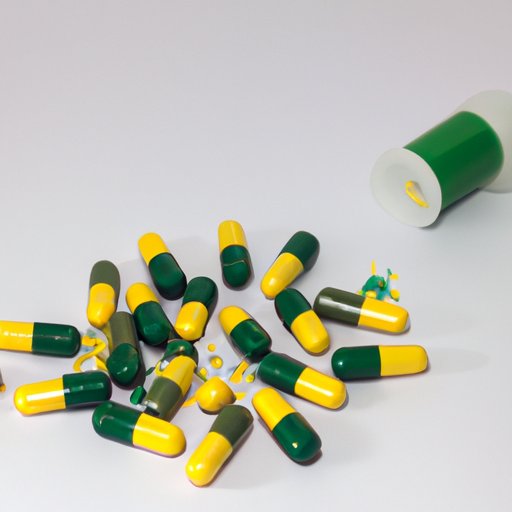
I. Introduction
Antibiotics are essential medicines used to treat bacterial infections. While they can be incredibly effective, it’s important to take them as directed to ensure a successful recovery. If you miss a dose of antibiotics, it can have serious consequences for both your health and the effectiveness of the medication. In this article, we’ll explore what happens if you miss a dose of antibiotics and offer best practices for handling it.
II. The Risks and Consequences of Missed Antibiotic Doses
One of the main risks of missing a dose of antibiotics is the development of antibiotic resistance. When antibiotics are not taken as directed, bacteria can adapt and become resistant to the medication. This can make future infections more difficult to treat and require the use of stronger antibiotics.
In addition to antibiotic resistance, missing doses of antibiotics can have other consequences. For example, if you don’t finish a course of antibiotics, your infection may come back. This can lead to recurrent infections, which can be more severe and harder to treat.
III. Why Skipping Antibiotics Can Be Harmful to Your Health
Untreated infections can be incredibly dangerous to your health. In some cases, they can even be life-threatening. Antibiotics work by killing or slowing the growth of bacteria. When you skip a dose or fail to finish a course of antibiotics, the bacteria may continue to grow and spread. This can result in a more severe infection and longer recovery time.
IV. The Importance of Taking Your Antibiotics as Directed
Taking antibiotics as directed is critical to prevent antibiotic resistance. When you finish a course of antibiotics, you have eliminated the bacteria responsible for your infection. If you stop taking antibiotics too soon or miss doses, you may not eliminate all the bacteria, allowing them to adapt and develop resistance.
Following instructions from your healthcare provider can also lead to a faster and more successful recovery. Your healthcare provider has prescribed a specific dose and schedule of antibiotics based on your individual needs. By following this plan, you’re giving your body the best chance to fight the infection and heal.
V. What Happens When You Miss a Dose of Antibiotics and How to Handle It
When you miss a dose of antibiotics, it can affect the effectiveness of the medication. The level of antibiotics in your body may drop too low to effectively fight the infection. The best practice is to take the missed dose as soon as possible. However, if it’s close to the time for your next scheduled dose, you should skip the missed dose and continue with your usual schedule.
If you’re ever unsure what to do if you miss a dose of antibiotics, be sure to consult with your healthcare provider. They can offer specific guidance based on the type of antibiotic and your individual situation.
VI. The Dos and Don’ts of Dealing with a Missed Antibiotic Dose
When dealing with a missed antibiotic dose, there are some best practices you should follow. First and foremost, communicate with your healthcare provider. They can provide specific instructions and answer any questions you may have.
Avoid doubling up on doses, as this can lead to overdose and an increased risk of side effects. Additionally, avoid taking a missed dose too close to your next scheduled dose. This can result in a higher concentration of antibiotics in your body, which can also increase the risk of side effects.
VII. Conclusion
Antibiotics are an essential tool in fighting bacterial infections. However, missing a dose can have serious consequences for your health and the effectiveness of the medication. By taking your antibiotics as directed and communicating with your healthcare provider if you have any questions or concerns, you can ensure a successful recovery and prevent antibiotic resistance.




